By Aubrey Vora
My older brother, Sean, has hypohidrotic ectodermal dysplasia (HED). Try saying that three times fast! Well, as a sibling of someone with a rare genetic disorder like this, I’ve had plenty of opportunities to practice.
And, after 30+ years, I’ve also had many opportunities to educate people about a condition they never knew existed. It has not been years of research or special knowledge in genetic biology that has helped me, but my experiences growing up with Sean, and years spent at National Foundation for Ectodermal Dysplasias (NFED) Family Conferences and events.
Our Annual Trek to Family Conference
I started going to the annual Family Conferences at the age of one. Daycare was run mostly by parents at the time, which made it feel like a village coming together to support the young. My family went to the conference every summer, so playing with kids who looked and functioned in different ways – maybe with conical teeth or dentures, maybe without eyebrows or certain digits of the hand – was my normal.
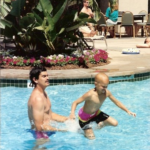
Whether affected by or connected to a genetic condition, at the end of the day, we all wanted to play Twister or get tossed into the pool (something my dad was known for). At first, I noticed there were a lot of people who were like Sean, but as the variety of conditions represented in the room expanded each year, so did my understanding that there are a lot of different ways to be human.
My Team of Aunties
My brother and dad have been every year since we started. During my years of teenage angst, I started skipping conferences, or attending without engaging – wandering around on my own, or just sleeping through the whole weekend. Even though I didn’t have a rare disorder myself, I often felt odd and bothered at school, so after a while, I get used to excluding myself as protection.
I had my own perception of what it was to be a “cool kid”, convinced myself I wasn’t one of them. You know, typical teenage blah blah blah. However, at the conferences, the cool kids were often seen volunteering. And, because these conferences were really more like family reunions, I had a team of aunties who didn’t have time for shyness or patience for bad attitudes, so I was put to work.
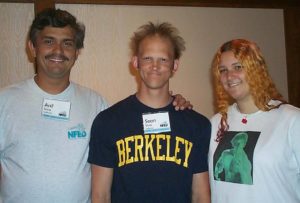
I remember the first time I really got brought into volunteer; it felt like a rite of passage. Late night, in the master suite of the hotel, stuffing envelopes with the NFED staff and volunteers, I was no longer just a sibling – I had my own place in the picture. At one point during some late-night giggle fits, Beverly (Meier from the NFED staff) looked at me in disbelief – having watched me grown up, year by year, one summer weekend at a time.
In a loving, energetic outburst, she exclaimed, “I can’t believe you’re here! I’ve known you so long, I practically BIRTHED you!” Surprised faces looked to see how I’d react, and when I laughed, so did everyone else. From that point, I felt like I was part of things and I started engaging more.
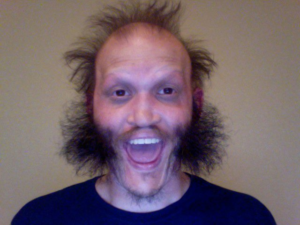
How I Help Now
In the past few years, I have run icebreakers for the opening sessions, I’ve monitored the teen room, I have illustrated coloring pages for Ectodermal Dysplasias Awareness Month, offered prints to Kays’ Kids Camp, and I have chaperoned field trips.
My brother has also gotten involved in various projects, including working with the teens, men and young adult groups – he even raised thousands of dollars with his “Follicle Fate” campaign and his #GivingTuesday Facebook fundraisers. This is no surprise, of course – Sean has always been cool enough to volunteer.
My mom is not able to attend conferences as often as the rest of us, but when she does, I always find her having a heart-to-heart with someone in the corner of the lobby, listening and celebrating their inspiring stories. A few years ago, when (NFED Founder) Mary Kaye Richter prepared for retirement, my dad stepped up to help the staff with the transition, and continues to be an active member of the Board.
So, the NFED has become a pretty large part of my family life year-round and over the years, I have seen how volunteering has helped us all grow more confident, more compassionate, and more willing to actively participate. This past year, my brother and his wife brought their daughter, Sóley, to the conference in Washington DC, and she is already getting involved in raising awareness.
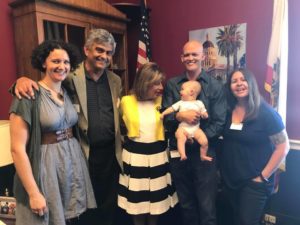
Give of Yourself
Yes, special skills are wonderful to offer if you have them, and I am always excited to see what we can learn from each other. However, being an active community member may not always mean you take on a leadership position or even sign up on a list. It might mean you simply offer your time and energy to an individual who needs to be heard.
As my dad often reminds me, the talks and seminars are valuable, but some of the most important conversations happen by the poolside. While we come from all over and we only come together for a few days a year, we are a vast and varied family, and these opportunities to gather are what we make them.
So, if you’re read this far, then I encourage you to find the way that you want to help us co-create this community – whether that is at the conference or in your hometown. I’m grateful for all I have learned through my experiences, and I’m excited to continue to share and connect with you and the rest of our NFED family in the years to come!
Oh, and Beverly, while you may no longer be beside us, you are always with us. I am deeply grateful for the empowering love and compassion you exuded, and I will carry your light with me as I continue to grow, year after year, one summer weekend at a time. Thank you.
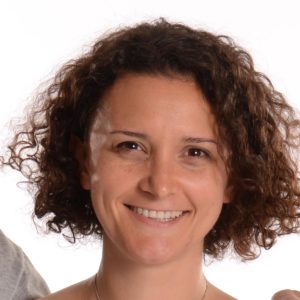
Hugs from Denmark, Aubrey 😍
Beautifully written.